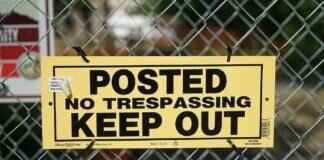This article delves into the legal implications of failing to pay alimony in the United States, exploring the consequences, enforcement measures, and various factors influencing alimony obligations.
Understanding Alimony: Definition and Purpose
Alimony, also known as spousal support, is financial assistance provided by one spouse to another following a divorce. Its primary purpose is to ensure that the lower-earning spouse can maintain a similar standard of living post-separation.
Legal Framework Governing Alimony
Alimony laws differ significantly across states, influenced by factors such as the duration of the marriage, financial disparities, and the recipient’s needs. Understanding these laws is essential for both payers and recipients to navigate their rights and obligations effectively.
Types of Alimony
- Temporary Alimony: Awarded during divorce proceedings to cover living expenses until a final decision is made.
- Rehabilitative Alimony: Designed to support a spouse while they gain necessary skills or education for self-sufficiency.
- Permanently Alimony: Granted in long-term marriages, providing ongoing support unless altered by future circumstances.
Consequences of Failing to Pay Alimony
Neglecting alimony payments can lead to severe legal repercussions, including:
- Contempt of Court Charges: Recipients can file for contempt if payments are missed, potentially resulting in penalties for the non-compliant spouse.
- Wage Garnishment: A portion of the payer’s wages may be automatically deducted to meet alimony obligations.
- Jail Time: In extreme cases, failure to pay can result in imprisonment.
Defenses Against Alimony Non-Payment
There are several defenses available for individuals unable to pay alimony:
- Change in Financial Circumstances: Significant hardships, such as job loss, can lead to a petition for modification or suspension of payments.
- Cohabitation of the Recipient: If the recipient is living with a new partner, this may reduce their financial need.
Steps to Enforce Alimony Payments
Recipients have several options to enforce alimony payments:
- Seeking Legal Counsel: Consulting an attorney can provide guidance on securing payments and understanding rights.
- Filing Motions in Court: If informal attempts fail, recipients can file motions to compel payment, potentially leading to court hearings.
Alimony Modification: When and How
Both parties may seek to modify alimony agreements due to changes in circumstances:
- Grounds for Modification: Changes in income or the recipient’s financial needs can justify a modification.
- Legal Process for Modification: This typically involves filing a petition, attending a hearing, and providing supporting documentation.
In conclusion, understanding the complexities of alimony is crucial for both payers and recipients. The legal landscape surrounding alimony is intricate and varies by jurisdiction, making it essential to seek expert advice when navigating these obligations and rights.
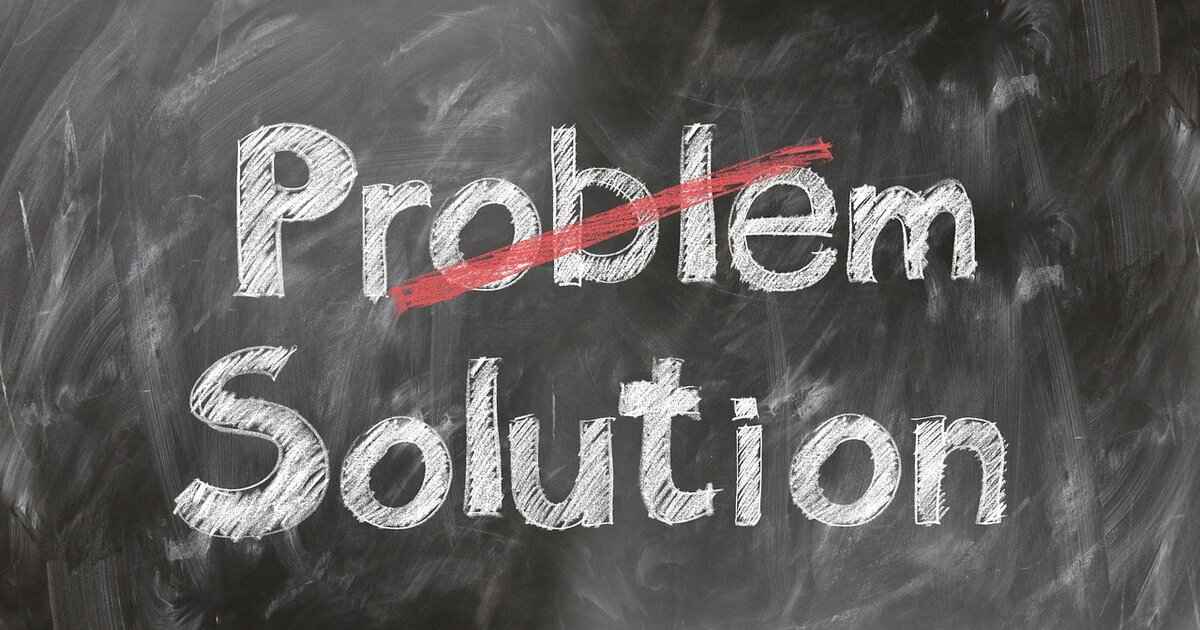
Understanding Alimony: Definition and Purpose
Alimony, often referred to as spousal support, represents a critical financial arrangement established during divorce proceedings. It is designed to provide financial assistance from one spouse to another, ensuring that the lower-earning spouse can maintain a reasonable standard of living after the marriage ends. The concept of alimony is rooted in the idea of fairness and equity, recognizing that marriages often involve a partnership where one spouse may sacrifice career opportunities for the benefit of the family.
The primary purpose of alimony is to mitigate the economic impact of divorce on the lower-earning or non-working spouse. This support allows the recipient to cover essential living expenses such as housing, food, and healthcare, thereby avoiding a drastic decline in their quality of life. Alimony can also serve as a transitional support mechanism, giving the recipient time to gain skills, education, or employment to achieve financial independence.
In the United States, the laws governing alimony vary significantly by state, reflecting different societal values and economic conditions. Factors such as the duration of the marriage, the financial disparity between the spouses, and the recipient’s ability to support themselves are all considered when determining alimony obligations. For instance, longer marriages typically result in more substantial alimony awards, as the court recognizes the greater interdependence developed over time.
There are several types of alimony, each tailored to specific circumstances:
- Temporary Alimony: This type is awarded during divorce proceedings and is intended to provide immediate financial support until a final agreement is reached.
- Rehabilitative Alimony: This support is designed to help the recipient gain the skills or education necessary to become self-sufficient. It is often time-limited and contingent upon achieving specific goals.
- Permanently Alimony: In some cases, alimony may be awarded indefinitely, particularly in long-term marriages where the recipient may not be able to become self-supporting.
Understanding the nuances of alimony is essential for both parties involved in a divorce. For the payer, it is crucial to comprehend their financial obligations and the potential consequences of failing to meet these obligations. For the recipient, knowing their rights and the factors that influence alimony can empower them to advocate for fair support.
Moreover, the process of determining alimony can be complex, often requiring legal representation to navigate the intricacies of state laws and court procedures. Individuals seeking alimony or those who are obligated to pay should consider consulting with a qualified attorney who specializes in family law. This legal guidance can ensure that both parties understand their rights and responsibilities, leading to a more equitable resolution.
In summary, alimony plays a vital role in the divorce process, aiming to provide financial stability to the lower-earning spouse. Its definition and purpose extend beyond mere financial support; it embodies the principles of fairness and equity in the aftermath of marriage dissolution. As such, understanding alimony is essential for anyone navigating the complexities of divorce.

Legal Framework Governing Alimony
Alimony laws in the United States are complex and vary significantly from state to state. These laws are shaped by a multitude of factors, including the duration of the marriage, the financial disparity between spouses, and the specific circumstances surrounding each divorce. Understanding these regulations is essential for both those who pay alimony and those who receive it, as it helps navigate their rights and responsibilities.
In general, alimony, also known as spousal support, is designed to provide financial assistance to a lower-earning spouse after a divorce. The purpose is to help maintain a similar standard of living that was enjoyed during the marriage. This support can be crucial, particularly for individuals who may have sacrificed career opportunities for family responsibilities.
The legal framework governing alimony encompasses various types, including:
- Temporary Alimony: Awarded during divorce proceedings to ensure the lower-earning spouse can meet immediate living expenses.
- Rehabilitative Alimony: Intended to support a spouse while they gain skills or education necessary for self-sufficiency.
- Permanently Alimony: Provided when one spouse cannot become self-sufficient, usually after long-term marriages.
State laws dictate the specific criteria for awarding alimony, including the length of the marriage and the financial needs of both parties. Courts will also consider the recipient’s ability to support themselves, which can influence the duration and amount of support awarded. For instance, a longer marriage may result in a higher alimony award, while a shorter marriage might lead to temporary or minimal support.
When a payer fails to meet their alimony obligations, the repercussions can be severe. Courts take non-payment seriously, and recipients have several legal avenues to enforce alimony orders. One common enforcement method is wage garnishment, where a portion of the payer’s earnings is automatically deducted to fulfill their obligations. Additionally, recipients can file for contempt of court, which may lead to penalties for the non-compliant spouse, including fines or even jail time in extreme cases.
However, there are defenses available for those unable to pay alimony. Significant changes in financial circumstances, such as job loss or unexpected medical expenses, can warrant a modification of alimony payments. Furthermore, if the recipient begins cohabitating with a new partner, this may reduce their financial need and allow the payer to seek a reduction or termination of their alimony obligations.
For recipients seeking to enforce their alimony rights, consulting with an attorney is advisable. Legal counsel can provide guidance on the best strategies for securing payments and understanding state-specific laws. If informal attempts to collect alimony fail, filing motions in court may be necessary. This process can lead to court hearings where the payer may face penalties for non-compliance.
In cases where circumstances change, both parties may seek to modify existing alimony agreements. Common grounds for modification include substantial changes in income, employment status, or the recipient’s financial needs. The legal process for modification typically involves filing a petition with the court and providing documentation to support the requested changes.
In summary, understanding the legal framework governing alimony is crucial for both payers and recipients. By being informed about their rights and obligations, individuals can navigate the complexities of alimony laws more effectively, ensuring that their financial responsibilities are met while also protecting their interests.
Types of Alimony
Alimony, a crucial aspect of divorce proceedings, comes in various forms, each designed to address specific needs and circumstances of the parties involved. Understanding the types of alimony is essential for both payers and recipients to navigate their rights and obligations effectively.
There are three primary types of alimony: temporary, rehabilitative, and permanent. Each type serves distinct purposes based on the circumstances surrounding the divorce.
- Temporary Alimony: This type of alimony is awarded during the divorce proceedings. Its primary goal is to provide immediate financial support to the lower-earning spouse, ensuring they can cover essential living expenses until a final divorce decree is issued. Typically, temporary alimony is short-term and designed to bridge the gap during the often lengthy divorce process.
- Rehabilitative Alimony: Rehabilitative alimony supports a spouse who needs time to gain the necessary skills or education to become self-sufficient. This type of support is often time-limited and contingent upon the recipient achieving specific goals, such as completing a degree or obtaining employment in a new field. Courts usually set a defined duration for rehabilitative alimony, which reflects the time needed for the recipient to transition to financial independence.
- Permanent Alimony: Unlike temporary and rehabilitative alimony, permanent alimony is intended for long-term support. It is typically awarded in cases where the marriage lasted for a significant duration, and the recipient is unable to support themselves due to age, health issues, or other circumstances. Permanent alimony continues until the recipient remarries or either party passes away, providing ongoing financial stability for the lower-earning spouse.
Each type of alimony is determined by the court based on various factors, including the length of the marriage, the financial needs of the recipient, and the payer’s ability to provide support. Understanding these distinctions is vital for individuals navigating divorce proceedings, as they can significantly impact financial outcomes.
In addition to the primary types of alimony, some jurisdictions may recognize other forms, such as reimbursement alimony, which compensates a spouse for contributions made during the marriage that enabled the other spouse to pursue education or career advancement. This type of alimony is less common but serves to address unique situations where one spouse has significantly benefited from the other’s sacrifices.
Ultimately, the type of alimony awarded will depend on the specific circumstances of the case. It is advisable for individuals involved in divorce proceedings to consult with a knowledgeable attorney who can provide guidance tailored to their situation and help them understand their rights and obligations regarding alimony.
Temporary Alimony
is a crucial financial support mechanism during the divorce process, designed to assist the lower-earning spouse in managing their living expenses until a final decision on alimony is reached. This form of support is typically short-term, reflecting the transitional nature of divorce proceedings.
Understanding temporary alimony is essential for both parties involved in a divorce. It aims to provide financial stability to the spouse who may have been dependent on the other for support. This can be particularly important in situations where one spouse has sacrificed their career or education for the benefit of the family.
Temporary alimony is usually determined by the court based on various factors, including:
- The income and financial resources of both spouses
- The standard of living established during the marriage
- The duration of the marriage
- The needs of the recipient spouse
During divorce proceedings, the court may issue a temporary alimony order shortly after one spouse files for divorce. This order can be essential for the recipient to maintain their quality of life while navigating the often-stressful transition of separation. The amount and duration of temporary alimony can vary significantly based on individual circumstances and state laws.
It’s important to note that temporary alimony is not a permanent solution; it is intended to bridge the gap until a more comprehensive alimony arrangement can be established. Once the divorce is finalized, the court will assess the long-term alimony needs of the lower-earning spouse, which may lead to different types of alimony, such as rehabilitative or permanent support.
In some cases, the paying spouse may challenge the amount or duration of temporary alimony. This can lead to hearings where both parties present evidence regarding their financial situations. Courts typically consider the best interests of the recipient spouse when making decisions about temporary alimony, ensuring that they can meet their essential needs during the divorce process.
Failure to pay temporary alimony can result in serious legal consequences for the paying spouse. Courts take these obligations seriously, and non-compliance may lead to enforcement actions, including wage garnishment or contempt of court charges. Therefore, it is vital for the paying spouse to adhere to the court’s orders regarding temporary alimony.
In conclusion, temporary alimony plays a vital role in providing necessary financial support during divorce proceedings. It helps ensure that the lower-earning spouse can maintain a reasonable standard of living while the divorce is finalized. Understanding the intricacies of temporary alimony can help both parties navigate this challenging period more effectively.
Rehabilitative Alimony
is a crucial financial support mechanism designed to assist a spouse in transitioning to self-sufficiency after a divorce. This type of alimony is particularly beneficial for individuals who may have sacrificed their careers or educational opportunities during the marriage. By providing temporary financial assistance, rehabilitative alimony aims to facilitate the recipient’s ability to acquire necessary skills or education, ultimately leading to their independence.
This form of alimony is often time-limited and contingent upon the recipient achieving specific, court-defined goals. For example, a spouse may receive rehabilitative alimony while attending vocational training or pursuing a degree. The intent is to empower the individual to re-enter the workforce with enhanced qualifications, thereby reducing their reliance on spousal support.
One of the key aspects of rehabilitative alimony is its goal-oriented nature. Courts typically require the recipient to outline their plans for education or skill development, which must be approved as part of the alimony agreement. This ensures that the financial support serves a clear purpose and is not indefinite. The duration of rehabilitative alimony can vary significantly based on the recipient’s specific circumstances, including the length of the marriage and the extent of the recipient’s prior contributions to the household.
Factors influencing the amount and duration of rehabilitative alimony include:
- The recipient’s age and health
- The length of the marriage
- The recipient’s prior education and work experience
- The financial resources of the paying spouse
It’s important to note that rehabilitative alimony is distinct from other types of alimony, such as permanent alimony, which may be awarded when the recipient is unlikely to become self-sufficient due to age or health issues. In contrast, rehabilitative alimony is designed to be a temporary solution, encouraging the recipient to take proactive steps towards financial independence.
Moreover, if the recipient fails to meet the agreed-upon goals or milestones, the paying spouse may petition the court to modify or terminate the alimony payments. This aspect underscores the importance of clear communication and documentation throughout the rehabilitative process.
In summary, rehabilitative alimony is a valuable tool for supporting a spouse’s transition to self-sufficiency post-divorce. By focusing on education and skill development, it not only aids the recipient but also promotes fairness in the divorce process. Ensuring that both parties understand their rights and obligations regarding rehabilitative alimony can lead to more amicable resolutions and better outcomes for everyone involved.
Factors Influencing Alimony Awards
When determining alimony, courts in the United States take into account a variety of critical factors that reflect the unique circumstances of each case. Understanding these factors can help both payers and recipients navigate the complex landscape of spousal support. Below are some of the most significant elements that courts consider:
- Length of the Marriage: The duration of the marriage is often a primary factor. Generally, longer marriages may result in higher alimony awards, as they indicate a deeper financial and emotional interdependence.
- Financial Needs of the Recipient: Courts assess the financial needs of the lower-earning spouse. This includes evaluating their monthly expenses, lifestyle, and any special needs that may arise, such as medical expenses or childcare costs.
- Recipient’s Ability to Support Themselves: Courts will closely examine the recipient’s ability to become self-sufficient. This includes their education, work experience, and job prospects. If the recipient is capable of supporting themselves, the court may reduce or deny alimony.
- Standard of Living During Marriage: The court aims to maintain a similar standard of living for the recipient post-divorce. This consideration ensures that the financial impact of the divorce does not drastically alter the recipient’s quality of life.
- Contributions to the Marriage: Contributions are not limited to financial input. Courts also consider non-monetary contributions, such as homemaking, child-rearing, and supporting the other spouse’s career advancements.
- Age and Health of Both Parties: The age and health of both spouses can influence alimony decisions. Older spouses or those with health issues may require more support due to limited employment opportunities.
- Marital Misconduct: In some states, the court may consider marital misconduct, such as infidelity, when determining alimony. This can affect the amount and duration of payments.
- Tax Consequences: The tax implications of alimony payments are also a consideration. Changes in tax laws can influence the financial dynamics of alimony, affecting both parties’ financial situations.
Each of these factors plays a pivotal role in shaping the court’s decision regarding alimony. It is essential for both parties to present comprehensive evidence and arguments related to these factors during the proceedings.
In conclusion, understanding the various factors that influence alimony awards can empower both payers and recipients to approach the situation more effectively. By being informed about these elements, individuals can better prepare for negotiations and court proceedings, ultimately leading to a fairer outcome.
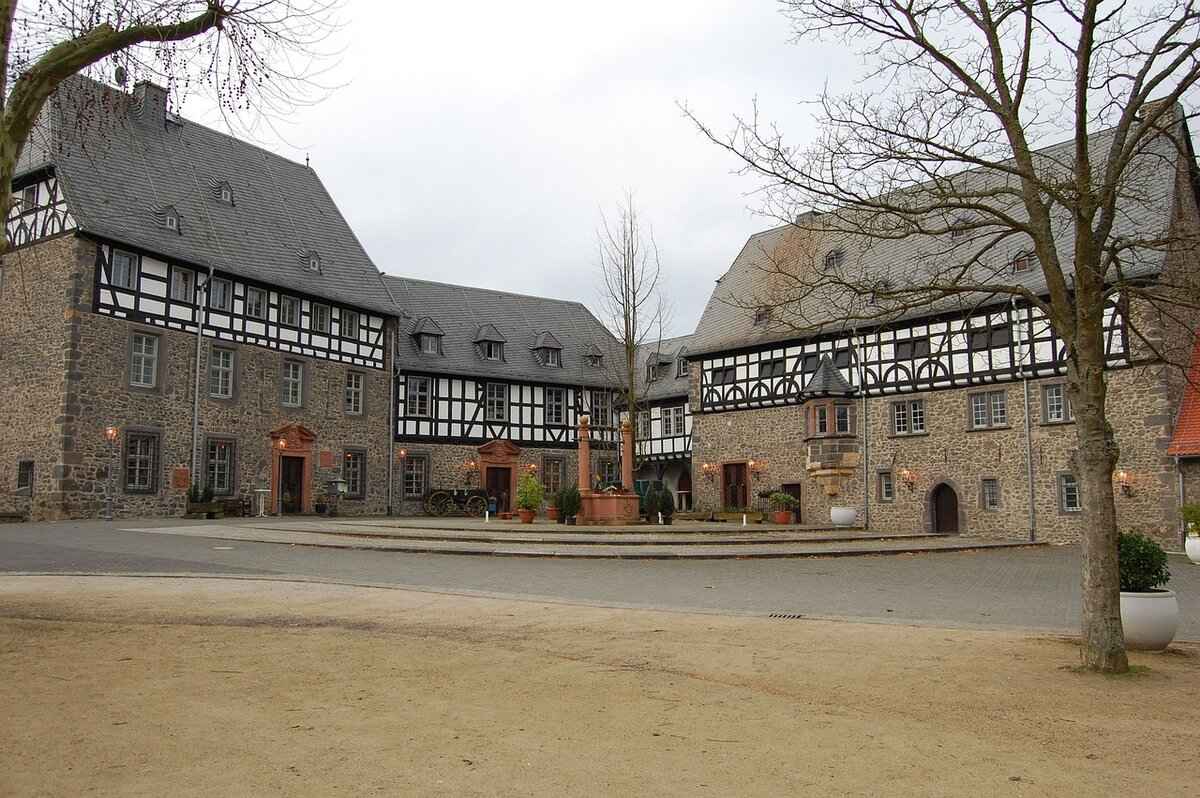
Consequences of Failing to Pay Alimony
Failing to pay alimony is a serious issue that can lead to significant legal consequences for the payer. Alimony, or spousal support, is intended to provide financial assistance to a lower-earning spouse after a divorce, helping them maintain a standard of living that is as close as possible to what they were accustomed to during the marriage. When obligations are not met, the repercussions can be severe.
Not fulfilling alimony obligations can result in various legal actions. The most immediate consequence is often contempt of court charges. When a payer fails to make payments as ordered by the court, the recipient can file a motion for contempt. This legal action can lead to penalties, including fines or even jail time in extreme situations. Courts take these matters seriously, as they are designed to uphold the integrity of court orders.
Another significant consequence of not paying alimony is wage garnishment. This is a legal process where a portion of the payer’s wages is automatically deducted by their employer to satisfy the alimony obligation. Wage garnishment ensures that the recipient receives the financial support they need, regardless of the payer’s willingness to comply. The amount garnished typically depends on state laws and the payer’s income level.
In extreme cases, persistent non-payment of alimony can lead to jail time. Courts may impose incarceration as a last resort for individuals who willfully refuse to comply with court-ordered alimony payments. This serves as a deterrent, emphasizing the importance of adhering to legal obligations. It is crucial for payers to understand that their financial responsibilities are enforceable by law.
- Legal Fees: Recipients may incur legal fees when pursuing enforcement actions, adding to the financial burden of the payer.
- Credit Impact: Failing to pay alimony can negatively affect the payer’s credit score, making it difficult to secure loans or credit in the future.
- Loss of Licenses: In some states, non-payment can lead to the suspension of professional licenses, further impacting the payer’s ability to earn a living.
While there are serious consequences for failing to pay alimony, there are also defenses available for those who find themselves unable to meet their obligations. Changes in financial circumstances, such as job loss or medical emergencies, can be valid reasons for seeking a modification of alimony payments. Additionally, if the recipient has begun cohabitating with a new partner, this may also affect their financial needs and potentially lead to a reduction or termination of alimony obligations.
If you find yourself in a situation where you cannot meet your alimony obligations, it is essential to take proactive steps. First, consult with a qualified attorney who can guide you through the legal process. You may need to file a motion with the court to modify your alimony payments based on your current financial situation. Documenting your financial hardships will be crucial in supporting your case.
In summary, the consequences of failing to pay alimony are significant and can lead to a range of legal actions, including contempt of court, wage garnishment, and even jail time. Understanding these implications is vital for anyone obligated to pay alimony, as proactive measures can help mitigate potential legal issues.
Contempt of Court Charges
arise when a party fails to comply with court orders, particularly in the context of alimony payments. This legal mechanism is crucial for ensuring that financial obligations set forth during divorce proceedings are met. Understanding the implications of contempt of court is essential for both payers and recipients of alimony.
When a payer neglects their alimony responsibilities, the recipient has the right to seek legal recourse. One of the most common actions is to file a motion for contempt of court. This action serves as a formal request to the court to address the non-compliance. If the court finds the payer in contempt, several consequences may follow, including fines, wage garnishment, or even jail time in severe cases.
- Filing a Motion: The recipient must file a motion with the court detailing the non-payment and requesting a hearing.
- Burden of Proof: The recipient must provide evidence that the alimony payments were due and not made.
- Potential Outcomes: If the court rules in favor of the recipient, it may order the payer to comply with the original alimony order, pay back owed amounts, and possibly face additional penalties.
It is important to note that the court seeks to understand the reasons behind the non-payment. If the payer can demonstrate a legitimate inability to pay—due to job loss or unexpected financial hardship—the court may take a more lenient approach. This could involve modifying the alimony order or temporarily suspending payments rather than imposing harsh penalties.
Enforcement Actions are also a critical aspect of contempt proceedings. Courts have various tools at their disposal to ensure compliance. These may include:
| Enforcement Action | Description |
|---|---|
| Wage Garnishment | A portion of the payer’s wages is automatically deducted to fulfill alimony obligations. |
| Property Liens | The court may place a lien on the payer’s property until the debt is settled. |
| License Suspensions | In some cases, the court may suspend the payer’s driver’s or professional licenses. |
Moreover, the payer may face criminal charges in extreme cases of willful non-compliance. Courts take alimony obligations seriously, as they are designed to protect the financial well-being of the recipient, often who may be reliant on these payments for basic living expenses.
In conclusion, contempt of court charges serve as a powerful tool for enforcing alimony orders. Recipients should be aware of their rights and the legal processes available to them. By understanding the implications of non-payment and the potential consequences for the payer, both parties can navigate the complexities of alimony obligations more effectively.
Wage Garnishment
is a legal mechanism that allows creditors, including ex-spouses owed alimony, to collect payments directly from a debtor’s wages. This process ensures that a portion of the payer’s income is withheld by their employer and sent directly to the recipient, providing a reliable means of enforcing court-ordered financial support. The significance of wage garnishment cannot be understated, especially in cases where the payer may otherwise fail to meet their alimony obligations.
In the United States, wage garnishment for alimony is governed by both federal and state laws, which dictate the procedures and limits involved. Generally, the amount that can be garnished from an individual’s wages is capped at a certain percentage of their disposable income. This percentage varies by state, but it typically ranges from 25% to 50% of the disposable earnings, depending on the circumstances.
The process begins when the recipient of alimony seeks to enforce a court order. They may file a request for wage garnishment with the court, which then issues a garnishment order to the payer’s employer. The employer is legally obligated to comply with this order and will start deducting the specified amount from the payer’s paycheck. This ensures that the recipient receives the necessary funds to support their living expenses.
While wage garnishment is an effective tool for ensuring alimony payments, there are legal protections in place for the payer. For example, the federal government limits the amount that can be garnished to protect the payer from financial ruin. Additionally, if the payer experiences a significant change in financial circumstances, such as losing their job or facing unexpected medical expenses, they can petition the court for a modification of the garnishment order.
Wage garnishment can have profound implications for both parties involved. For the recipient, it provides a consistent source of income to meet their financial needs. However, for the payer, it can lead to financial strain, especially if they are already struggling to make ends meet. This is why it is crucial for both parties to communicate and seek modifications when necessary.
While wage garnishment is a common method of enforcing alimony payments, it is not the only option available. Recipients may also consider negotiating payment plans directly with the payer or seeking mediation to resolve disputes amicably. These alternatives can sometimes lead to more favorable outcomes without the need for court intervention.
In summary, wage garnishment serves as a vital enforcement mechanism for alimony obligations, ensuring that recipients receive the financial support they are entitled to. Understanding the legal framework and implications of this process can help both payers and recipients navigate their rights and responsibilities effectively. By staying informed and proactive, individuals can manage their alimony obligations in a way that is fair and equitable for both parties.
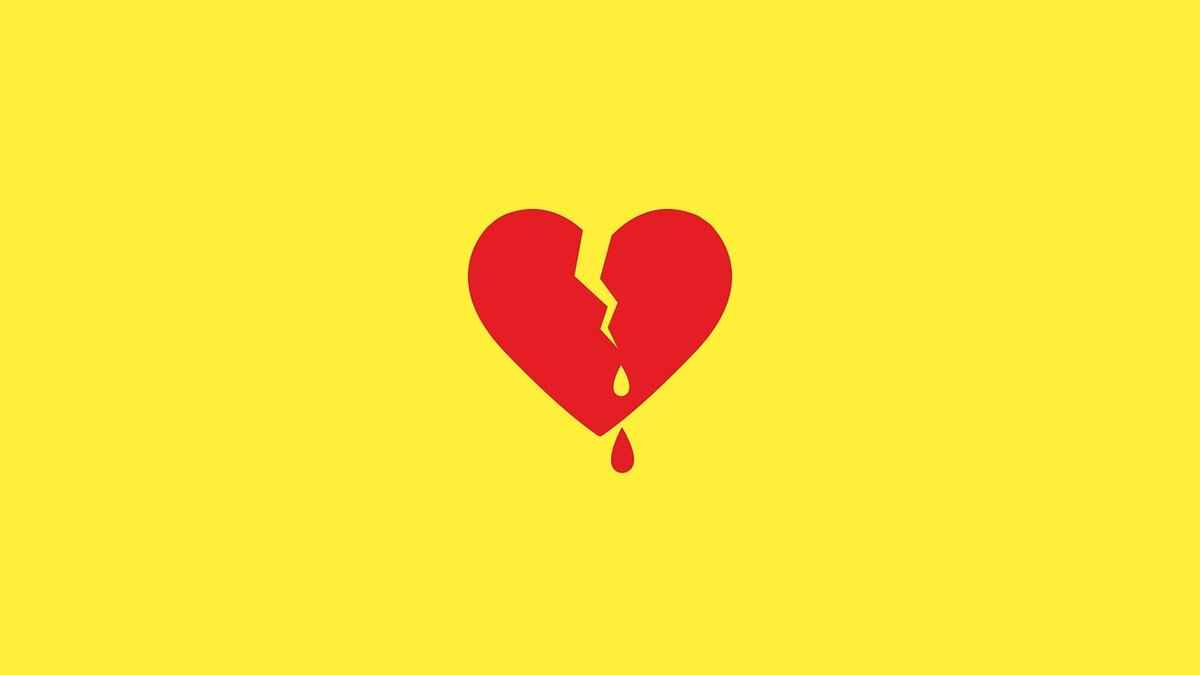
Defenses Against Alimony Non-Payment
In the realm of family law, alimony serves as a critical support mechanism for individuals transitioning from marriage to independence. However, circumstances can arise that hinder a payer’s ability to fulfill their financial obligations. Understanding the is essential for both payers and recipients. This section explores various defenses available, including changes in financial circumstances and the recipient’s cohabitation with a new partner.
One of the most common defenses against alimony non-payment is a change in financial circumstances. If a payer experiences a significant downturn in their financial situation—such as job loss, a reduction in income, or unexpected medical expenses—they may petition the court for a modification of their alimony obligations. Courts typically require substantial evidence to support claims of financial hardship, including:
- Recent pay stubs or tax returns
- Documentation of job loss or reduced hours
- Medical bills or other unexpected expenses
By providing this evidence, the payer can argue that their current financial situation makes it impossible to meet the original alimony agreement.
Another viable defense is the cohabitation of the recipient. If the recipient enters into a new relationship and begins living with a partner, this can significantly alter their financial needs. Courts may view cohabitation as a change in circumstances that warrants a reevaluation of alimony payments. To successfully argue this defense, the payer must demonstrate:
- The duration and nature of the cohabitation
- The financial support provided by the new partner
- Changes in the recipient’s financial situation
In some cases, if the recipient’s financial needs have decreased due to the new partnership, the court may reduce or terminate the alimony obligation.
While changes in financial circumstances and cohabitation are the most common defenses, there are other factors that may also influence alimony obligations:
- Retirement: If a payer reaches retirement age and their income significantly decreases, they may seek a modification.
- Fraud or Misrepresentation: If the recipient misrepresented their financial situation during the divorce proceedings, the payer might have grounds to contest the alimony.
- Duration of Payments: If the original alimony was meant to be temporary and the circumstances have not changed, the payer may argue for termination.
To raise any of these defenses, the payer must follow a specific legal process:
1. Gather Evidence: Collect all necessary documentation to support your claim.2. File a Motion: Submit a motion to the court requesting a modification or termination of alimony.3. Attend a Hearing: Present your case before a judge, providing evidence and testimony to support your defense.4. Await the Court's Decision: The judge will evaluate the evidence and make a ruling based on the merits of the case.
Understanding the defenses against alimony non-payment is crucial for those navigating the complexities of family law. By being informed about potential changes in circumstances and the legal avenues available, both payers and recipients can better advocate for their rights and obligations.
Change in Financial Circumstances
In the realm of family law, financial circumstances play a pivotal role in determining alimony obligations. When a payer faces unexpected financial challenges, such as job loss or medical emergencies, the legal system provides avenues for relief. Understanding how to navigate these changes is crucial for both payers and recipients of alimony.
If a payer experiences significant financial hardship, they may petition the court for a modification or suspension of alimony payments. This process is not merely a matter of claiming financial distress; it involves a structured legal approach.
- Documenting Financial Hardship: To initiate a modification, the payer must gather and present evidence of their financial situation. This includes recent pay stubs, tax returns, and documentation of any job loss or medical expenses.
- Filing a Petition: The next step involves filing a formal petition with the court that issued the original alimony order. This document should clearly outline the reasons for the requested modification and include supporting evidence.
- Attending a Hearing: Once the petition is filed, a court hearing will be scheduled. During this hearing, both parties can present their cases. The payer must demonstrate their inability to meet the current alimony obligations due to their changed financial circumstances.
It is important to note that the burden of proof lies with the payer. Courts typically consider the following factors when evaluating a petition for modification:
| Factor | Description |
|---|---|
| Duration of Financial Hardship | The length of time the payer has been experiencing financial difficulties. |
| Efforts to Find Employment | Evidence of the payer’s attempts to secure new employment or increase income. |
| Impact on Recipient | How the modification might affect the recipient’s financial stability and needs. |
In some cases, the court may grant a temporary suspension of payments while the payer seeks new employment or recovers from a medical situation. However, this does not absolve the payer of their alimony obligation; it merely postpones it. The court may also require the payer to make up the missed payments once their financial situation stabilizes.
Additionally, it is essential for payers to communicate openly with their ex-spouses regarding their financial difficulties. In some situations, amicable negotiations can lead to a mutual agreement on temporary modifications without the need for court intervention. This can save both parties time, money, and emotional distress.
On the other hand, if the recipient believes that the payer’s claims of financial hardship are exaggerated or unfounded, they have the right to contest the petition. This may involve presenting their own evidence and arguments during the court hearing.
Ultimately, the legal process surrounding alimony modifications due to changes in financial circumstances is designed to ensure fairness for both parties. It is advisable for anyone considering a petition for modification to seek legal counsel to navigate the complexities of family law effectively.
Cohabitation of the Recipient
In the realm of alimony and spousal support, one significant factor that can influence financial obligations is the . When a recipient begins living with a new partner, it can lead to substantial changes in their financial situation, which may, in turn, affect the payer’s alimony obligations.
When determining alimony, courts consider the financial needs of the recipient. If the recipient enters into a cohabiting relationship, their financial dependence on the payer may decrease. This is because the new partner may contribute to household expenses, effectively reducing the recipient’s need for alimony. As a result, the payer may have grounds to request a modification or even termination of their alimony payments.
Legal Implications of Cohabitation
Cohabitation can be viewed as a significant change in circumstances. Many jurisdictions allow payers to seek a modification of alimony based on the recipient’s new living arrangements. However, the payer must provide evidence that the cohabitation has materially changed the recipient’s financial situation. This can include proof of shared expenses, such as rent, utilities, and groceries.
Criteria for Modification
- Duration of Cohabitation: The length of time the recipient has been living with their partner may be scrutinized. Longer periods may indicate a more stable financial situation.
- Financial Contribution: Courts will examine how much the new partner contributes financially. A significant contribution may bolster the payer’s case for modification.
- Living Arrangements: Evidence of shared living arrangements, such as a joint lease or shared bills, can support the payer’s claim.
It is important to note that not all cohabitation situations will lead to a reduction or termination of alimony. If the recipient’s new partner is not providing substantial financial support, the court may determine that the recipient still requires alimony to maintain a reasonable standard of living.
Process for Seeking Modification
If a payer believes that the recipient’s cohabitation warrants a modification of alimony, they must follow a legal process:
- Gather Evidence: Collect documentation demonstrating the recipient’s cohabitation and any financial contributions from the new partner.
- File a Petition: Submit a petition to the court requesting a modification of the alimony agreement based on the new circumstances.
- Court Hearing: Attend a court hearing where both parties can present their evidence and arguments regarding the alimony modification.
Potential Outcomes
The court will evaluate the evidence presented and may rule in favor of the payer, leading to a reduction or termination of alimony. Alternatively, if the evidence does not support the payer’s claims, the court may uphold the existing alimony order.
In summary, the cohabitation of the recipient can significantly impact alimony obligations. Payers should be aware of their rights and the legal avenues available to seek modifications based on changes in the recipient’s financial circumstances. It is advisable for both parties to consult with legal professionals to navigate these complex issues effectively.
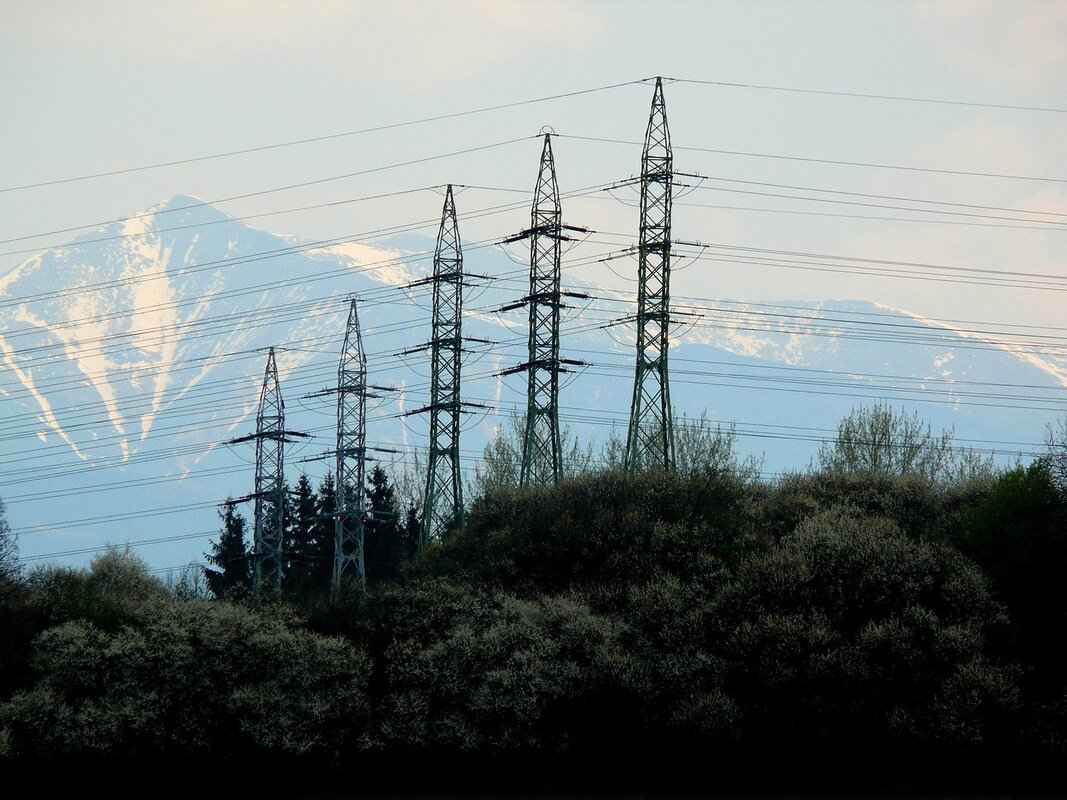
Steps to Enforce Alimony Payments
When it comes to enforcing alimony payments, recipients have a variety of options at their disposal. Understanding these steps can empower individuals to secure the financial support they are entitled to after a divorce. Below are some of the most effective methods for enforcing alimony payments.
One of the first steps a recipient should consider is seeking legal counsel. An experienced attorney can provide invaluable guidance on the specific laws in their state regarding alimony enforcement. They can help analyze the recipient’s situation and recommend the best course of action, whether that involves negotiation or legal proceedings.
If informal attempts to collect alimony prove unsuccessful, the next step may involve filing a motion in court. This legal document requests the court to compel the payer to fulfill their alimony obligations. The motion typically requires a clear outline of the payment history and the amounts owed. A court hearing may be scheduled where both parties can present their cases.
Many states have enforcement agencies dedicated to ensuring compliance with alimony and child support orders. Recipients can contact these agencies to initiate enforcement actions, which may include wage garnishment or other measures. These agencies have the authority to take action against non-compliant payers, making them a valuable resource.
If the payer continues to neglect their alimony obligations, the recipient may file for contempt of court. This legal action claims that the payer is willfully disobeying a court order. If the court finds the payer in contempt, they may face penalties, including fines or even jail time, depending on the severity of the non-compliance.
It is crucial for recipients to keep thorough records of all alimony payments, including dates and amounts. This documentation can serve as evidence in court if enforcement actions are necessary. Maintaining a clear paper trail not only strengthens the recipient’s case but also demonstrates their commitment to resolving the issue legally.
In some cases, recipients may find it beneficial to negotiate directly with the payer. Open communication can sometimes lead to a resolution without the need for legal action. Recipients can discuss their financial needs and attempt to reach a mutually agreeable payment plan. However, it is advisable to have any agreements documented and potentially reviewed by an attorney to ensure they are enforceable.
If the payer is experiencing financial difficulties, it may be necessary to seek a modification of the alimony agreement. This can involve filing a petition with the court to adjust the payment amounts based on the payer’s current financial situation. Both parties must present evidence to substantiate their claims during this process.
Recipients should familiarize themselves with the legal framework governing alimony in their state. Each state has different laws and enforcement mechanisms, so understanding these can help recipients navigate their options more effectively. Knowledge of local regulations can also aid in identifying the most effective enforcement strategies.
In summary, recipients of alimony have several tools at their disposal to enforce payment. From seeking legal counsel to utilizing state agencies, understanding the available options can empower individuals to secure the support they need post-divorce. By following these steps, recipients can take proactive measures to ensure compliance with alimony obligations.
Seeking Legal Counsel
When navigating the complexities of alimony, is essential for recipients who wish to secure their rightful payments. The intricacies of alimony laws can be daunting, and having an experienced attorney by your side can significantly impact the outcome of your case.
Consulting with an attorney not only provides recipients with a clear understanding of their rights under state law but also helps them identify the most effective strategies to pursue alimony payments. Attorneys can offer personalized guidance based on individual circumstances, ensuring that recipients are well-informed about their options.
- Assessment of Legal Rights: An attorney can clarify the specific rights of the recipient concerning alimony. They can explain how state laws apply to individual cases and what legal protections exist.
- Evaluation of Financial Needs: Attorneys can assist in evaluating the financial needs of the recipient, helping to establish a case for the appropriate amount of alimony. This evaluation considers factors such as living expenses, standard of living during the marriage, and any potential changes in financial circumstances.
- Document Preparation: Legal counsel can ensure that all necessary documentation is prepared correctly and submitted on time. This includes financial affidavits, income statements, and any other relevant documents required by the court.
- Negotiation Skills: Attorneys are skilled negotiators and can advocate on behalf of the recipient during discussions with the other party or their legal representatives. This can lead to amicable settlements without the need for prolonged litigation.
- Representation in Court: If negotiations fail, having an attorney means the recipient will be represented in court. This representation is crucial for presenting evidence and arguments effectively, increasing the likelihood of a favorable ruling.
Furthermore, an attorney can help recipients understand the potential consequences of failing to pay alimony. They can explain the legal repercussions that the payer may face, including contempt of court charges, wage garnishment, and possible jail time in extreme cases. This knowledge empowers recipients to take informed action if payments are not made.
Additionally, legal counsel can assist in filing motions in court if informal attempts to collect alimony fail. They can guide recipients through the process of compelling payment, which may involve court hearings and the potential for penalties against the non-compliant spouse.
In summary, consulting with an attorney is a critical step for anyone seeking to secure alimony payments. The expertise and guidance provided by a legal professional can make a significant difference in navigating the complexities of alimony laws and ensuring that recipients receive the support they are entitled to under the law.
Filing Motions in Court
is a crucial step for recipients of alimony who are struggling to receive the financial support they are entitled to. When informal attempts to collect alimony payments fail, the legal system provides a structured avenue to enforce these obligations. This section will delve into the process of filing motions in court, the potential outcomes, and the implications for both the payer and the recipient.
Alimony, or spousal support, is designed to ensure that the lower-earning spouse can maintain a reasonable standard of living after a divorce. However, when a payer fails to meet their alimony obligations, it can lead to significant financial distress for the recipient. In such cases, the recipient has the right to seek legal recourse through the court system.
Understanding the Motion Process
- To initiate enforcement, the recipient typically files a motion for contempt of court. This legal document outlines the payer’s failure to comply with the existing alimony order.
- The motion must be filed in the same court that issued the original alimony order, ensuring that the case is handled by the appropriate legal authority.
- Once filed, the court will schedule a hearing where both parties can present their arguments and evidence.
Potential Outcomes of Court Hearings
During the hearing, the judge will evaluate the evidence presented by both sides. If the court finds the payer in contempt, several outcomes may follow:
- Payment Orders: The court may order the payer to make the overdue payments immediately.
- Payment Plans: In some cases, the court may establish a payment plan to help the payer fulfill their obligations over time.
- Penalties: The payer may face penalties, which can include fines or even jail time for repeated non-compliance.
Enforcement Mechanisms
If the payer continues to neglect their alimony obligations, the court has several enforcement mechanisms at its disposal:
- Wage Garnishment: The court may authorize the automatic deduction of alimony payments from the payer’s wages, ensuring that the recipient receives consistent support.
- Property Liens: The court can place liens on the payer’s property, preventing them from selling or refinancing until the alimony debt is settled.
- Contempt Charges: Continued failure to comply with court orders can lead to further contempt charges, escalating the legal consequences for the payer.
Legal Representation
It is highly advisable for recipients to seek legal counsel when considering filing a motion in court. An experienced attorney can provide valuable guidance on the process, help gather necessary documentation, and represent the recipient during court proceedings. Legal representation can significantly improve the chances of a favorable outcome.
Conclusion
Filing motions in court is a vital tool for enforcing alimony payments. By understanding the legal process and potential outcomes, recipients can take proactive steps to secure the financial support they need. With the right legal support, recipients can navigate the complexities of the court system and work towards a resolution that upholds their rights.

Alimony Modification: When and How
In the realm of family law, alimony modification is a critical aspect that allows both parties to adapt their financial obligations post-divorce. Life is unpredictable, and changes in circumstances can significantly impact the ability of either party to fulfill their alimony commitments. Understanding the process and requirements for modifying alimony agreements is essential for both payers and recipients.
Alimony, also known as spousal support, is designed to provide financial assistance to a lower-earning spouse after a divorce. However, situations may arise where modifications are necessary. Common reasons for seeking a modification include:
- Job Loss: If the paying spouse loses their job or experiences a significant reduction in income, they may need to request a modification to lower their payments.
- Change in Financial Needs: If the recipient spouse’s financial situation improves, such as entering a new relationship or gaining employment, this may warrant a review of the alimony agreement.
- Health Issues: Unexpected medical expenses or health problems can drastically alter a payer’s financial stability, leading to a need for modification.
To initiate an alimony modification, the requesting party must go through a legal process. This typically involves:
- Filing a Petition: The first step is to file a formal petition with the court that originally issued the alimony order. This document should outline the reasons for the requested change.
- Gathering Evidence: It is crucial to provide supporting documentation, such as pay stubs, tax returns, or medical records, to substantiate the claims made in the petition.
- Court Hearing: A hearing will be scheduled where both parties can present their cases. The court will evaluate the evidence and determine whether the modification is justified.
The court considers various factors when deciding on alimony modifications, including:
- Duration of the Marriage: Longer marriages may result in more substantial alimony obligations and modifications.
- Standard of Living: The court aims to maintain a similar standard of living for both parties that was established during the marriage.
- Financial Resources: The income and financial resources of both parties will be thoroughly examined.
It is essential to note that modifications are not automatically granted. The burden of proof lies with the party seeking the change. Additionally, both parties should seek legal counsel to navigate this complex process effectively. An experienced attorney can provide valuable insights and help ensure that the modification request is presented clearly and convincingly.
In conclusion, understanding the alimony modification process is vital for both payers and recipients. Changes in circumstances can necessitate adjustments to alimony agreements, but these changes require careful legal consideration and appropriate documentation. By following the necessary steps and seeking professional guidance, individuals can effectively manage their alimony obligations in a fair and equitable manner.
Grounds for Modification
In the realm of family law, the modification of alimony is a significant consideration for both payers and recipients. Alimony, or spousal support, is designed to provide financial assistance to a lower-earning spouse following a divorce. However, circumstances can change over time, necessitating a review and potential alteration of the original alimony agreement. Below, we will explore the common grounds for modifying alimony, the legal process involved, and the importance of substantiating claims with evidence.
Changes in Income
One of the most common grounds for seeking a modification of alimony is a change in income. If the paying spouse experiences a significant reduction in income—due to job loss, a decrease in hours, or any other financial hardship—they may petition the court for a reduction in their alimony obligations. Conversely, if the recipient’s income increases substantially, the payer may seek a modification to decrease their payments. Courts typically require documentation, such as tax returns or pay stubs, to substantiate these claims.
Employment Status
Changes in employment status can also warrant a modification of alimony. If the payer becomes unemployed or underemployed, they may argue that their financial situation no longer allows for the same level of support. On the other hand, if the recipient gains full-time employment or receives a promotion, this can affect their financial needs. It is essential for both parties to present clear evidence of their employment changes to the court.
Recipient’s Financial Needs
Another critical factor is the financial needs of the recipient. If the recipient’s circumstances change—such as increased expenses due to medical issues or the need for childcare—this may justify a request for increased alimony. Courts will evaluate the recipient’s current financial situation, including their living expenses and any new financial obligations, to determine if a modification is warranted.
Change in Marital Status
A change in the recipient’s marital status can also influence alimony modifications. If the recipient remarries or enters into a long-term cohabitation arrangement, this may reduce their financial need for alimony. In such cases, the payer may seek to terminate or reduce their alimony payments, as the recipient’s financial support system has changed.
Legal Process for Modification
The legal process for modifying alimony typically begins with the filing of a petition in court. This petition must outline the reasons for the requested modification and include any supporting documentation. Both parties will have the opportunity to present their cases during a court hearing. It is vital to have legal representation to navigate this process effectively and ensure that all claims are substantiated with proper evidence.
Conclusion
In summary, modifications to alimony are grounded in significant changes in income, employment status, and the financial needs of both parties. Understanding these grounds and the legal process involved is crucial for anyone navigating the complexities of alimony obligations. By ensuring that all claims are backed by evidence, individuals can seek a fair and just resolution to their alimony agreements.
Legal Process for Modification
When individuals find themselves in changing financial situations, the need to modify alimony agreements often arises. Understanding the is crucial for both payers and recipients of alimony. This process typically begins with the filing of a petition in the appropriate court, and it requires careful attention to detail and adherence to legal protocols.
The first step in modifying alimony is to file a petition with the court that issued the original alimony order. This petition must outline the reasons for the requested changes, such as a significant change in income, job loss, or other financial hardships. Additionally, the petition should include:
- Personal Information: Details about both the payer and recipient.
- Financial Documentation: Evidence of income changes, expenses, and any other relevant financial data.
- Previous Court Orders: Copies of the original alimony agreement and any related court documents.
Once the petition is filed, the court will schedule a hearing. Both parties will receive notice of this hearing, and it is essential for them to prepare adequately. Preparation may involve:
- Gathering Evidence: Collecting documents that support the case for modification, such as pay stubs, tax returns, and expense reports.
- Consulting Legal Counsel: Seeking advice from an attorney who specializes in family law can provide valuable insights and help navigate the complexities of the legal system.
- Understanding Court Procedures: Familiarizing oneself with the court’s processes can help ease anxiety and ensure that all necessary steps are followed.
During the hearing, both parties will have the opportunity to present their cases. The judge will listen to the arguments, review the submitted documentation, and may ask questions to clarify any points. It is important to:
- Be Honest: Presenting truthful information is vital, as any discrepancies can lead to legal repercussions.
- Stay Respectful: Maintaining a professional demeanor can positively influence the court’s perception of both parties.
After reviewing the evidence and hearing both sides, the judge will make a ruling regarding the modification of alimony. This decision may result in:
- Modification Approval: If the judge finds sufficient grounds for modification, the alimony amount may be adjusted accordingly.
- Denial of Modification: If the evidence does not support a change, the original alimony terms will remain in effect.
If the modification is granted, it is essential for both parties to understand the new terms and comply with them. If denied, the payer may still have options, such as:
- Appealing the Decision: If there are grounds to believe the decision was unjust, an appeal may be filed.
- Seeking Further Modifications: If circumstances change again in the future, another petition can be filed.
The legal process for modifying alimony can be complex, but understanding each step can empower individuals to navigate it effectively. By preparing thoroughly and seeking appropriate legal guidance, parties can advocate for fair adjustments that reflect their current financial realities.
Frequently Asked Questions
- What happens if I don’t pay alimony?
Failing to pay alimony can lead to serious consequences, including contempt of court charges, wage garnishment, and in extreme cases, even jail time. It’s crucial to understand that the court takes alimony obligations seriously.
- Can alimony be modified?
Yes, alimony can be modified if there are significant changes in circumstances, such as job loss or changes in the recipient’s financial needs. Both parties must go through a legal process to ensure the modifications are fair and enforceable.
- What are the types of alimony?
There are several types of alimony, including temporary, rehabilitative, and permanent support. Each type serves different purposes based on the circumstances surrounding the divorce, helping to address the financial needs of the lower-earning spouse.
- How can I enforce alimony payments?
To enforce alimony payments, recipients can seek legal counsel, file motions in court, or utilize state enforcement agencies. These steps can help ensure that the payer complies with their obligations.
- What defenses exist against alimony non-payment?
Common defenses include significant changes in financial circumstances or if the recipient begins cohabitating with a new partner. These factors can impact the payer’s obligation and may allow for a reduction or suspension of payments.











